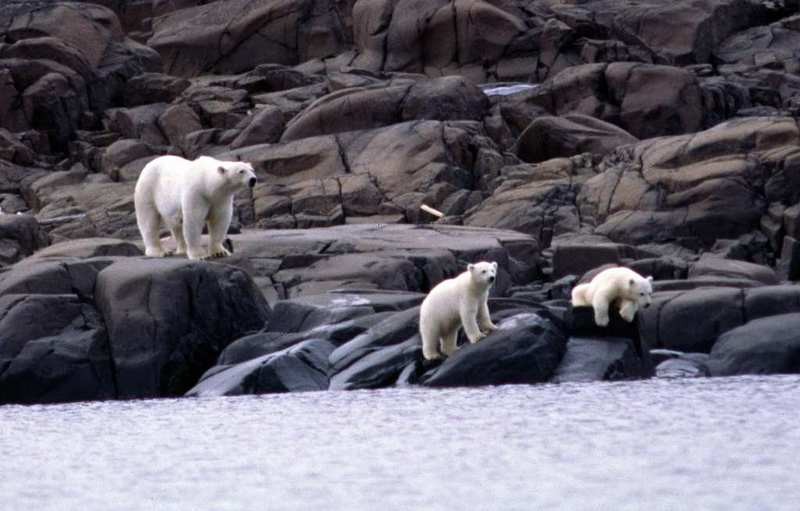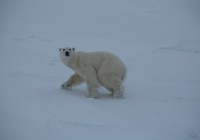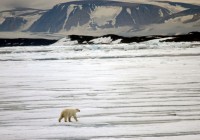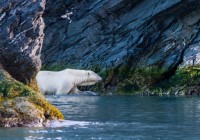
Polar bears may be inbreeding as climate change melts away Arctic ice
ADVERTISEMENT
Snorre Hagen and Simo Maduna, alongside their team, from the Norwegian Institute of Bioeconomy Research in Svanvik, sought to analyze the effect of the climate change’s impact on polar bears’ genetics. The results of the study is now published.
The team extracted DNA from the tissue samples of 622 polar bears from Norway’s Svalbard archipelago. The extracted DNA analysis found that between 1995 and 2016 the bears had lost between 3-10% of their genetic diversity (depending on how you measure this diversity). Simultaneously the polar bears had also grown more genetically distinct from the polar bears found at other sites in the Arctic.
The results of the study indicate that the polar bear populations in different locations are growing more genetically distinct from one another, while the bears found in the same location are becoming more genetically similar.
The researchers of the study suggest that the rapid melting of Arctic ice from climate change has led to the isolation of different polar bears groups. As it becomes more and more difficult for the different polar bear populations to interact, inbreeding in local polar bear populations is increasingly seen.
As the Social Democrats gained a majority vote (26,5%) in the Norwegian parliamentary elections on September 13th, a center-left coalition between the Social Democrats, Center Party and Socialist Left party is expected to be established. With the new-elected parliament it is likely that Norway will continue drilling for oil in its waters and increasing the effects of climate change.
Snorre Hagen and Simo Maduna predict that the trend of loss in the genetic variety of polar bear populations will most likely continue as climate change gets increasingly worse and greater amounts of ice melt in the Arctic.
ADVERTISEMENT
ADVERTISEMENT
The Barents Observer Newsletter
After confirming you're a real person, you can write your email below and we include you to the subscription list.





